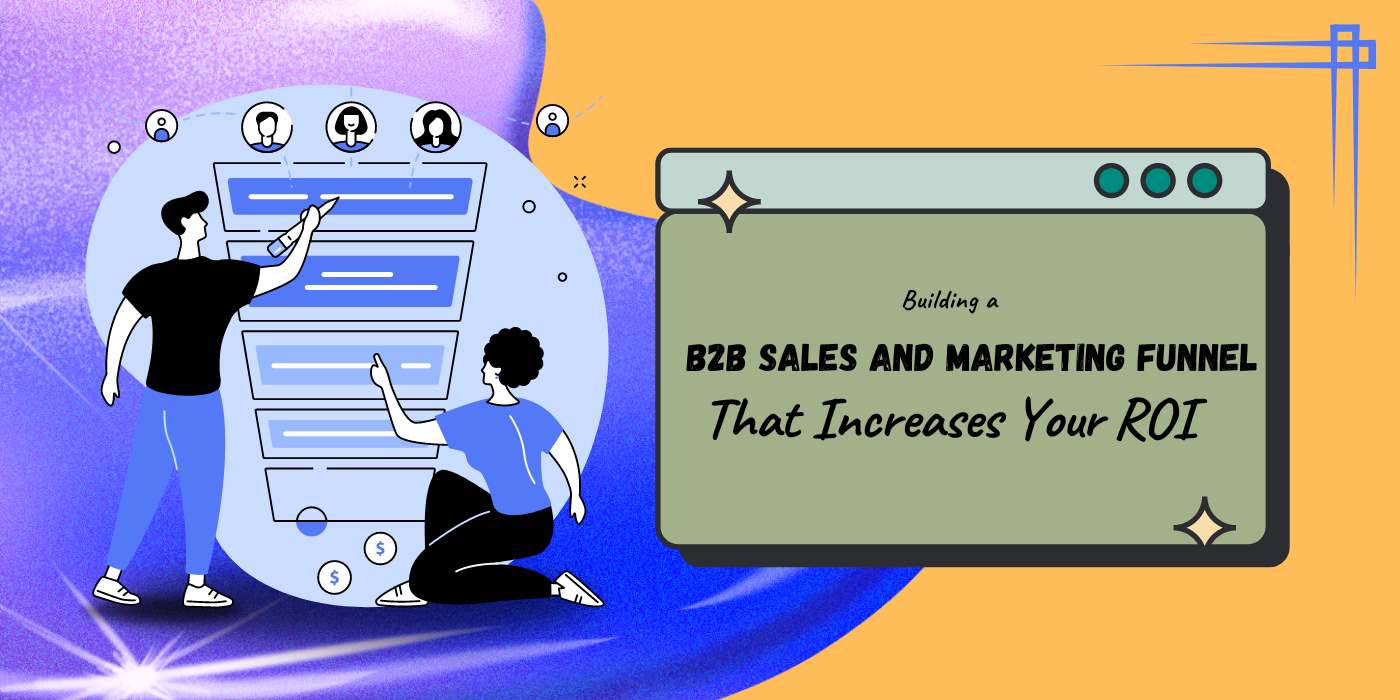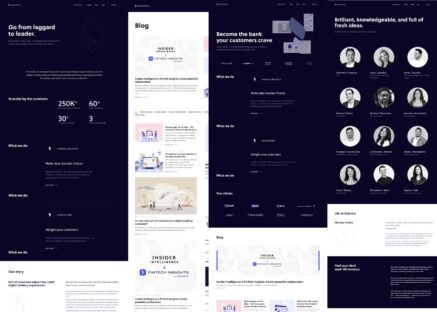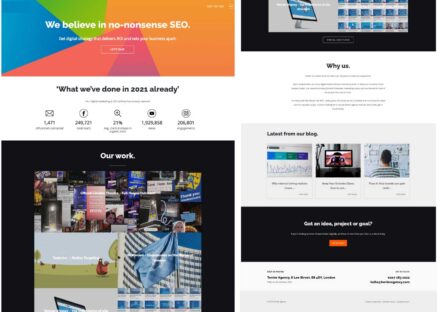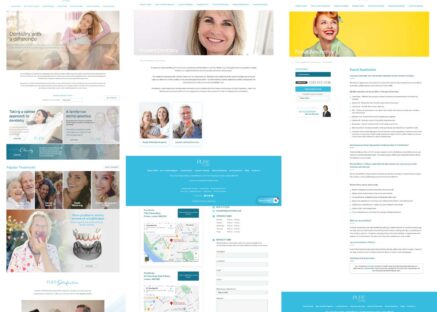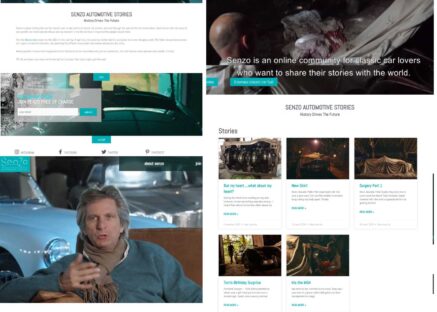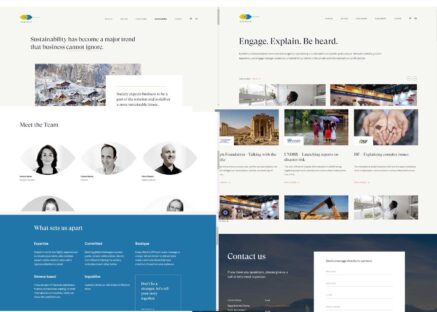In today’s fast-paced B2B marketing landscape, unlocking funnel success is a top priority for the best digital marketing agency. While programmatic strategies have been widely adopted, a growing need exists to explore non-programmatic approaches that can drive greater efficiency and effectiveness. In this article, we will delve into the world of non-programmatic strategies and uncover key tactics to optimize the B2B funnel for success.
Understanding the B2B Funnel
Before we dive into the non-programmatic strategies, let’s briefly understand the B2B funnel and its stages. The B2B funnel represents the buyer’s journey from awareness to conversion. It typically consists of three main stages:
Top of the Funnel (ToFu): At this stage, potential buyers become aware of their problems and start searching for solutions. Marketers need to create awareness and capture the attention of their target audience.
Middle of the Funnel (MoFu): In this stage, prospects have shown interest in the solution and are evaluating different options. Marketers should focus on providing valuable content and nurturing leads to move them closer to a purchase decision.
Bottom of the Funnel (BoFu): When a prospect reaches the BoFu stage, they are prepared to make a purchase decision. In order to turn leads into customers, marketers need to offer them offers that are both appealing and personalized, as well as techniques for closing deals.
The Role of Non-Programmatic Strategies
While programmatic strategies like paid advertising and automation play a crucial role in B2B marketing, non-programmatic strategies offer additional avenues to engage with prospects and drive conversions. Non-programmatic strategies, emphasizing brand identity, and prioritize human-to-human interactions and personalized experiences, impacting the B2B funnel significantly. Let’s explore some key non-programmatic strategies:
Account-Based Marketing (ABM): Account-Based Marketing (ABM) is a focused strategy that prioritizes connecting with decision-makers and important accounts above reaching a large audience. ABM allows marketers to tailor their messaging, content, and campaigns to specific accounts, increasing the chances of conversion. This strategy involves close collaboration between marketing and sales teams to identify high-value accounts, create personalized content, and execute targeted campaigns.
Influencer Marketing: Through collaboration with influential individuals boasting a substantial audience within your desired market, you can harness their credibility and expansive reach to magnify your message. Getting influential people in the industry to promote your products and brand is known as influencer marketing, and it is a potent non-programmatic strategy. This strategy proves instrumental in enhancing brand awareness, fostering trust, and directing qualified leads to your B2B funnel. Leveraging the expertise of a digital marketing agency can further optimize and streamline these efforts.
Content Marketing: Content marketing holds significant importance throughout the B2B funnel stages. Attracting, engaging, and educating the target audience is achievable for businesses through the creation of valuable and informative content. This adaptable approach to content marketing works well for blog articles, ebooks, whitepapers, videos, and webinars. The crucial element lies in delivering relevant and helpful content that directly addresses the pain points and challenges of your target audience. Enhance the efficiency of content marketing initiatives by leveraging the expertise and capabilities of a digital marketing agency in Chennai.
Personalization: Personalization is essential in today’s B2B marketing landscape. By tailoring your messaging and content to individual prospects, you can create a more personalized and engaging experience. Personalization can involve segmenting your audience, using dynamic content, and leveraging data to deliver targeted messages. By providing personalized experiences, you can drive higher engagement, conversion rates, and customer satisfaction.
Implementing Non-Programmatic Strategies
Now that we have explored some key non-programmatic strategies let’s discuss how to implement them effectively to unlock B2B funnel success:
Define Your Ideal Customer Profile (ICP): Establishing your ideal customer profile (ICP) is a prerequisite to implementing any non-programmatic plan. Your ICP represents your target audience’s characteristics, needs, and pain points. By clearly defining your ICP, you can tailor your non-programmatic strategies to engage and convert your ideal customers effectively.
Align Marketing and Sales Teams: Non-programmatic strategies require close collaboration between marketing and sales teams. By aligning these teams, you can ensure a seamless transition from marketing efforts to sales interactions. For non-programmatic tactics to have the greatest possible influence on the B2B funnel, regular communication, common objectives, and collaborative planning sessions are vital.
Leverage Data and Analytics: Data and analytics play a crucial role in optimizing non-programmatic strategies. By utilizing data from several sources, including marketing automation tools, CRM systems, and website analytics, you may acquire insightful knowledge about the behavior and preferences of your customers. These insights can help you refine your non-programmatic strategies, personalize messaging, and identify areas for improvement.
Test and Iterate: Like any marketing strategy, non-programmatic strategies require constant testing and iteration. By keeping an eye on key performance indicators, running A/B tests, and closely examining the results, you can determine whether your strategies are working or not. This iterative process allows you to improve your non-programmatic strategies over time and optimize them for better outcomes, particularly when it comes to SEO services. Non-programmatic strategies—especially when used by a web agency—offer B2B marketers great chances to interact with prospects and encourage conversions as they work to unlock funnel success.
By incorporating account-based marketing, influencer marketing, content marketing, and personalization into your B2B marketing efforts with the expertise of a web agency, you can optimize the B2B funnel and achieve better results. Remember to define your ideal customer profile, align marketing and sales teams, leverage data and analytics, and continuously test and iterate with the support of a web agency to maximize the impact of non-programmatic strategies on your B2B funnel. Embrace the power of non-programmatic strategies, guided by a web agency, and propel your B2B marketing to new heights. At the BoFu stage, prospects are ready to make a purchase decision. Marketers must provide compelling offers, personalized experiences, and effective closing strategies to convert leads into customers.

